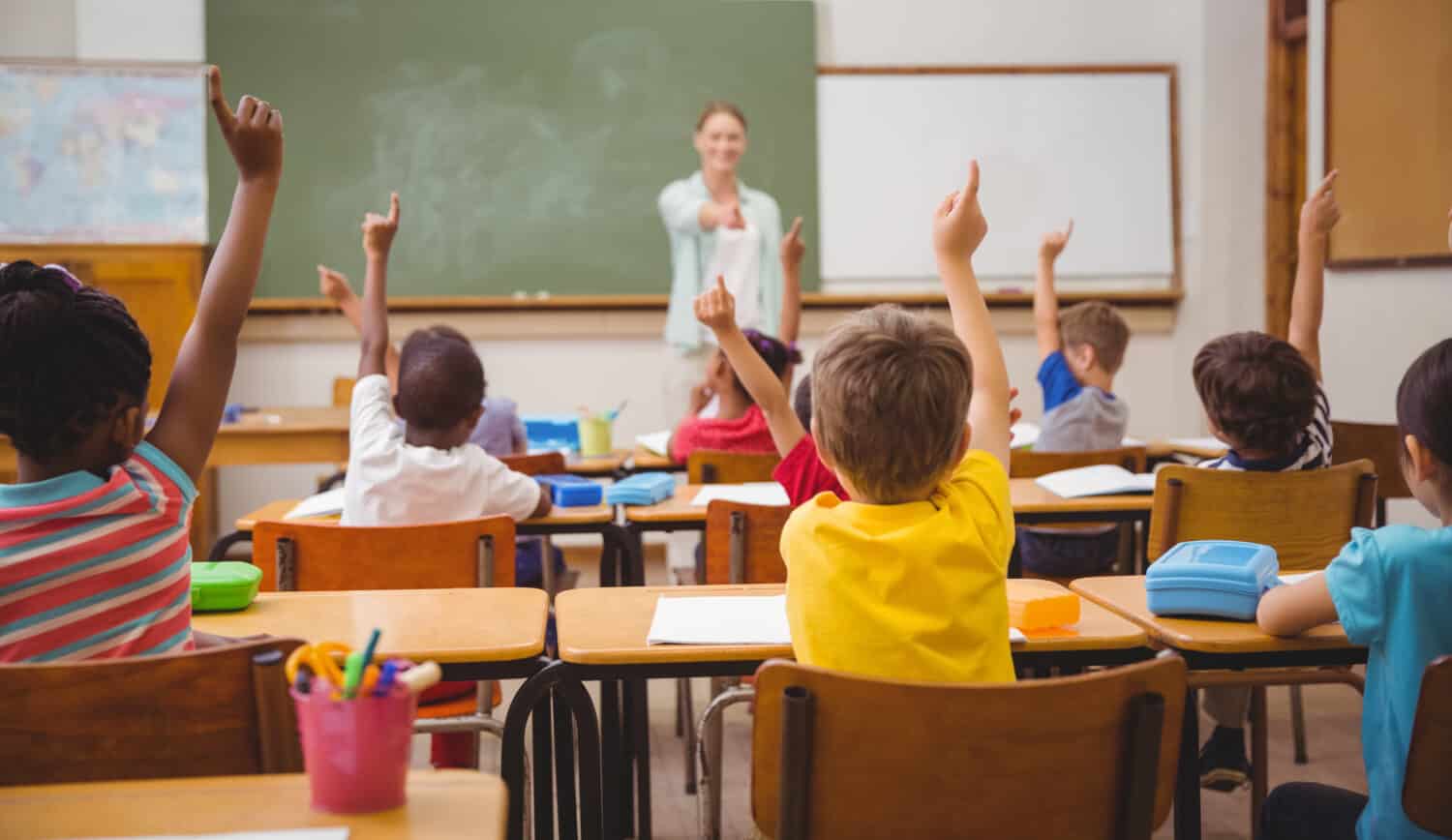

4 Things Pennsylvania Schools Absolutely Nailed
Every state does education differently. Even the most basic learning blocks — textbooks — can vary widely in content from state to state. It’s one of the things that makes the US so unique. The way one state conducts school policy might be completely alien to someone who lives just across the state border.
One of the states that has some pretty unique school features is Pennsylvania, the Keystone State. Pennsylvania was one of the original 13 colonies in the United States.
Pennsylvania has a ton of history to its name. It also has really excelled in bringing its schools into the 21st century. Below, find out four things Pennsylvania schools get right.
Career and Technical Education (CTE) Programs at Pennsylvania Schools
According to Pennsylvania’s Department of Education website, Career and Technical Education (CTE) programs are “provided at 136 high schools and 84 career and technical centers, offering over 1,720 approved programs of study to more than 66,000 students.”

©Hitdelight/Shutterstock.com
What exactly are CTE programs?
The key is in the name. Obviously, school in general should set our children up for eventual careers. They just take a pretty broad approach to it. Students are taught many subjects including mathematics, science, literature, languages, arts, civics, and more.
In career and technical programs, the learning is much more specialized. Technical, if you will. Students in these programs typically pursue careers in STEM or the arts. These students are interested in careers that don’t necessarily require a four-year college degree. Not as long as they have proper certifications.
This isn’t to say that students enrolled in CTE programs won’t also go on to enroll in college. Many do. The main difference: CTE programs focus on the practical knowledge required to enter and succeed in the job market. Not learning for learning sake, per se. College may be the next step in the path from a CTE program to a job, depending on the student. However, most of these CTE students will probably enter college with a defined major that stays the same for all four years. On the other hand, a non-CTE student may go to college undecided and figure out what they want to do for a living much later.
Are CTE programs beneficial for students in Pennsylvania schools?
It used to be that people turned their noses down on CTE programs. But the data points tell a way different story. According to a 2021 study by the Institute of Education Sciences, “participation in CTE programs has been associated with decreased dropout rates as well as increased rates of high school attendance, college enrollment, and employment.”
Many proponents of CTE programs stress the importance of the hands-on nature of classes. This appeals to students and keeps them in class. When students feel there is going to be a practical payoff to what they’re learning, they pay attention.

©Ground Picture/Shutterstock.com
How do these programs work in Pennsylvania schools?
In 2017, Pennsylvania’s governor signed into law an amendment that set forth alternate paths to graduation for CTE students specifically.
In order to graduate, all Pennsylvania students need to take the Keystone Exam. This exam measures competency in Algebra, Biology, and Literature. According to the law mentioned above, CTE concentrators still need to take the exams. But they do not have to earn proficiency on the exams to graduate, which is a requirement for non-CTE students.
Pennsylvania schools do give CTE students some other requirements to graduate, though. First, to actually be a CTE concentrator, the student must be enrolled in the school’s CTE program. The student must also pass at least 50% of the CTE program’s requirements by senior year. Additionally, CTE concentrators must either obtain official industry certification related to their respective CTE program, take the NOCTI (National Occupational Competency Testing Institute) pre- and post-tests, or take the CTE final exam at the end of senior year.
Pennsylvania Schools Support Their Public Libraries
Pennsylvania takes great pride in its state-supported public libraries — all 604 of them. It takes so much pride that the Governor of Pennsylvania literally has an Advisory Council on Library Development. The council reports on many subjects, including Pennsylvania’s funding strategies for libraries. It reports to the Governor, the Secretary of Education, and the Deputy Secretary for Libraries.
Why are libraries important to education?
First and foremost, libraries are some of the only publicly accessible places left where you can go inside, relax, and not buy anything. Just think about the other places you go when you need to get out of the house, or you want to read your book with some peace and quiet. At cafes or coffee shops, you need to buy something. Parks are nice when it’s not raining or snowing or brutally hot. That leaves libraries as one of the only places you can go when you want to sit and study, read, write, or research.
The other big reason libraries are important to education probably only became relevant in the last decade or so. This is when online learning became ubiquitous throughout schools. There is a huge learning divide based on family income and access to high-speed internet. It’s become such a problematic phenomenon that it now actually has a name — The Digital Divide.

©Monkey Business Images/Shutterstock.com
According to a study conducted by ParentsTogether Action, 13% of students from low-income homes have “either no device or no internet.” This is compared to only 1% of students who come from families with incomes of more than $50,000.
Perhaps this Digital Divide isn’t so obvious in the course of normal education. But think about during the pandemic when almost all learning went online. That left a lot of students without internet access in the lurch.
Libraries can step in, in situations like this, and provide a lifeline to students who need internet access. Obviously, there are still problems that come with this solution, like the fact that a student will not have privacy when learning in a library. But there is some relief in knowing that the library is always there for anyone who needs it. Pennsylvania schools know the importance of propping up public libraries.
Pennsylvania Schools Teach Financial Literacy
Another thing Pennsylvania schools get right is the focus their curricula put on economic education and financial literacy.
Financial literacy is one of the main areas of deficit affecting young adults today. This stems back to some of the same issues CTE programs address. Schools should not only teach students but ready them for the real world. Lessons should help students apply their learnings to practical activities like investing, saving, and taking out and paying down loans.
Pennsylvania includes a model curriculum framework for “Personal Finance” within its Standards Aligned System (SAS), the Pennsylvania Department of Education's digital curriculum and instruction resource site.
All Pennsylvania teachers have access to this and the Department of Education encourages them to adopt the model curricula.
The “Personal Finance” curriculum measures various competencies in grades K-12. Teachers instruct on everything from sharing resources (books and toys), to balancing a checkbook, to examining the micro- and macro-economic factors affecting how and why people spend and save.

©Andrey_Popov/Shutterstock.com
Pennsylvania Schools and the Hunger-Free Campus Initiative
Last on our list, but definitely not least, is Pennsylvania’s Hunger-Free Campus Initiative.
Food insecurity is one of the most widespread, but little-known, problems facing college students today. As revealed in a 2020 Chegg study, 35% of students surveyed said that hunger had affected their ability to study. 25% of students considered dropping out of school because of an inability to afford food. Most surprisingly, 52% of students often used off-campus food banks.
If any of those numbers surprise you, it’s likely because students don’t often talk about food insecurity. The issue is so stigmatized.
Pennsylvania is taking it seriously, though. The state launched the PA Hunger-Free Campus Initiative in 2022. It forms a coalition of colleges and universities focused on ensuring no student goes hungry. Any PA schools that take the necessary steps to significantly address hunger on campus will earn designation as a PA Hunger-Free Campus. This designation makes them eligible for state grants meant to ameliorate food insecurity.

©ASIFE/iStock via Getty Images
Based on all of these programs and policies, it’s safe to say that Pennsylvania is doing right by its students.